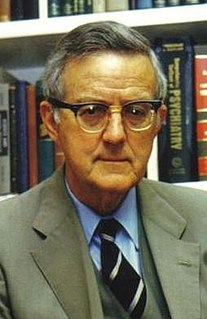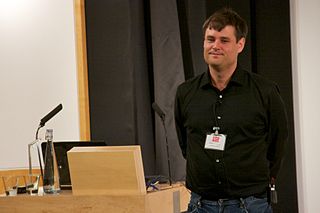A Quote by Isaac Asimov
Science is uncertain. Theories are subject to revision; observations are open to a variety of interpretations, and scientists quarrel amongst themselves. This is disillusioning for those untrained in the scientific method, who thus turn to the rigid certainty of the Bible instead. There is something comfortable about a view that allows for no deviation and that spares you the painful necessity of having to think.
Related Quotes
Difficulties arise when reported observations seem to conflict with 'facts' that the majority of scientists accept as established and immutable. Scientists tend to reject conflicting observations.....Nevertheless, the history of science shows that new observations and theories can eventually prevail.
It seems to me that there is a good deal of ballyhoo about scientific method. I venture to think that the people who talk most about it are the people who do least about it. Scientific method is what working scientists do, not what other people or even they themselves may say about it. No working scientist, when he plans an experiment in the laboratory, asks himself whether he is being properly scientific, nor is he interested in whatever method he may be using as method.
When people think science and cooking, they have no idea that it's not correctly expressed. We're actually applying the scientific method. People think chemistry and physics are science, but the scientific method is something else.... It's the science that the world of cooking generates: science of butter; science of the croissant.
If moral statements are about something, then the universe is not quite as science suggests it is, since physical theories, having said nothing about God, say nothing about right or wrong, good or bad. To admit this would force philosophers to confront the possibility that the physical sciences offer a grossly inadequate view of reality. And since philosophers very much wish to think of themselves as scientists, this would offer them an unattractive choice between changing their allegiances or accepting their irrelevance.
I don't think any administration, when they come in, thinks that their job is to tell the scientists what the science looks like or to be quiet about the science. Scientists need to remain true and not allow science to be politicized. Scientists are not politicians, and no politician should consider themselves to be a scientist.
Philosophers of science constantly discuss theories and representation of reality, but say almost nothing about experiment, technology, or the use of knowledge to alter the world. This is odd, because 'experimental method' used to be just another name for scientific method.... I hope [to] initiate a Back-to-Bacon movement, in which we attend more seriously to experimental science. Experimentation has a life of its own.
Facts and theories are different things, not rungs in a hierarchy of increasing certainty. Facts are the world's data. Theories are structures of ideas that explain and interpret facts. Facts do not go away while scientists debate rival theories for explaining them. Einstein's theory of gravitation replaced Newton's, but apples did not suspend themselves in mid-air pending the outcome.
It takes a fearless, unflinching love and deep humility to accept the universe as it is. The most effective way he knew to accomplish that, the most powerful tool at his disposal, was the scientific method, which over time winnows out deception. It can't give you absolute truth because science is a permanent revolution, always subject to revision, but it can give you successive approximations of reality.
The purpose of scientific method is to select a single truth from among many hypothetical truths. That, more than anything else, is what science is all about. But historically science has done exactly the opposite. Through multiplication upon multiplication of facts, information, theories and hypotheses, it is science itself that is leading mankind from single absolute truths to multiple indeterminate, relative ones.
Logically, taking Scripture seriously means being passionately concerned about interpreting it correctly and thus welcoming any evidence that exposes erroneous understandings of the biblical text. Unfortunately, many zealous Bible students and teachers confuse their favorite interpretations of the Bible with the Bible itself.



































